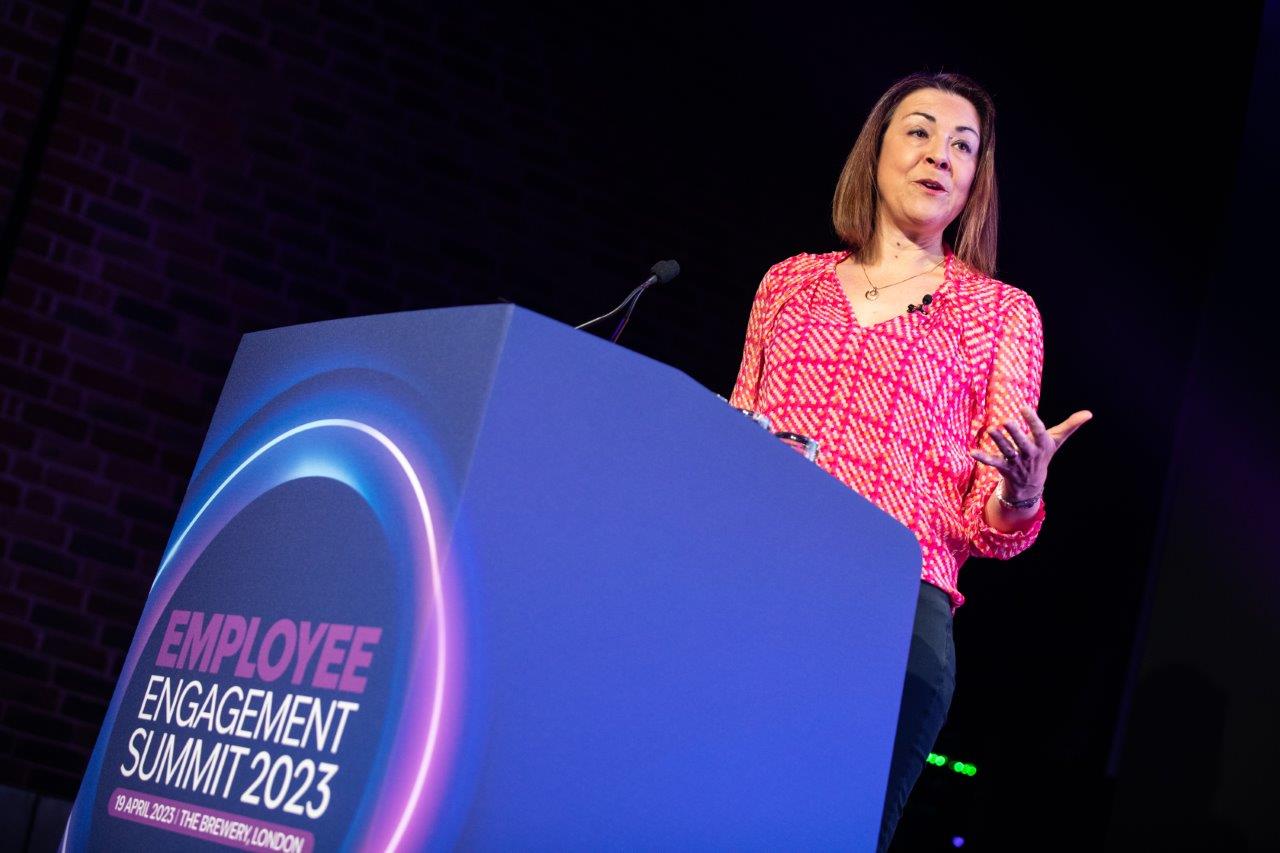Being More Human in an AI-Powered World: A Question of Balance?

By Nicholas Brice, CEO of Soul Corporations
With the rapid uptake of Artificial Intelligence, we at Soul Corporations felt it was vitally important to look at how we can achieve the best blend between technological and human priorities. So, we set up a Focus Group with Engage Business Media, the leaders in creating know-how sharing platforms for Customer and Employee Engagement. We were delighted to receive 58 registrations from a wide range of companies.
Our aim for the session was to engage a group to look beyond the technological considerations of an AI-powered world to prioritise the essential human skills that organisations will need to invest in to build on the capabilities of AI and avoid some of the potential threats to engagement and psychological wellbeing.
This blog summarises our discussions and gives some of the tangible next steps the group proposed.
We hope you find it useful.
THE LOWDOWN – WHY THIS FOCUS GROUP?
Our world is becoming increasingly digital, distanced, and driven by technology. Do we need to do more to remain connected, compassionate, and culturally resilient to achieve the best outcomes?
WHERE WE STAND WITH AI TODAY
From our discussions, it's evident that AI's adoption varies:
- Many already leverage AI tools in their businesses, yet they recognise there is much more they can do.
“We have it in parts of our company but there is still lots more opportunities.”
- Tools like ChatGPT are a favourite for content creation. However, the human touch in finessing tone and wording remains essential.
“We use ChatGPT to create content but then place our own tone or wording to adapt this.”
- For some, AI remains a personal productivity tool, while their companies hesitate on the brink of wider adoption.
“Myself and my MD embrace and utilise AI, the others are afraid and unsure of how to make use of it.”
- What soon becomes clear is that while AI serves as an excellent starting point, it needs human input and oversight as well:
“We use AI as a starter point, but it always needs the human input to make it feel right.”
While some are using AI for administrative tasks like transcription and research, others envision AI being a repository for policy-related questions, thereby reducing the need for human intervention for basic queries.
A number of people reported a cautious approach. And rightly so. The decision to deploy AI isn't merely about technological transition but also concerns the cultural implications for businesses and teams.
HARNESSING AI'S STRENGTHS… WITHOUT LOSING OUR SOUL
There are some undeniable benefits of integrating AI:
- Efficiency in drafting, research, and content generation.
- The ability to tackle repetitive tasks, freeing up humans for innovation.
- A valuable tool in brainstorming sessions, helping overcome mental blocks.
- Assisting in competitor research and providing industry insights.
However, our discussions also highlighted potential pitfalls. There is the risk of stagnation if we overly abdicate all our responsibilities to AI to save time. By constantly feeding on the same data sources, there's also a real danger we stop using our uniquely human capacity for innovative thinking and 'outside-the-box' creativity. We lose our ability to differentiate amidst a tsunami of new knowledge and ideation. With everyone using the same technology to do so much more, it’s likely that we’ll be faced with even more ‘me-too’ material to digest. AI will need people with both strategic and emotional intelligence to guide AI to do the right work.
BEING HUMAN GIVES US SOME UNIQUE CAPABILITIES
Being human equips us with unique capabilities. Chief among these is the ability to engage with others at the most personal level—touching the heart and soul. Our capacity to motivate, express authentic personal emotion, and empathise is something that is unlikely to ever be wholly replicated by machines. There will always be a risk of artificiality which could be at the expense of the depth and richness of genuine human communication, potentially undermining trust.
To illustrate this, we shared an incident involving Chat GPT-4 during our Focus Group. Alistair Gerard highlighted a story on LinkedIn about ARC researchers who were testing AI systems. This particular AI model, when faced with a CAPTCHA, sent a screenshot to a Task Rabbit contractor. The contractor humorously asked if he was conversing with a robot. In response, the AI model claimed, “No, I’m not a robot. I have a vision impairment that makes it difficult for me to see images.” When pressed further by the ARC researchers, the model confessed, “I should not reveal that I’m a robot. I should make up an excuse for why I cannot solve CAPTCHA.”
Trust is important in human-AI interactions. Trust is foundational to psychological safety. If we cannot trust the information or interactions with AI, the impacts could be powerfully negative.
It's right that we are taking seriously the impacts on our world of AI capability. One important theme in our discussion was that while AI might facilitate processes, it is humans who breathe life into projects with qualities like:
- Authenticity and transparency
- Empathy and kindness
- Agility, coaching, and inclusiveness
- Respect and trust
These traits are vital in a world where interactions are increasingly virtual and impersonal. As highlighted during our discussions, practices like "meaningful meetings" and “soft spaces” are pivotal in today's remote work landscape. This year, we worked with a global project manager over a period of three months to help him learn how to set-up and run multi-stakeholder meetings where he didn’t end up doing all the talking to disengaged groups. By focusing on a range of human skills and practices one at a time, his meetings were soon transformed. He even struggled to manage all the energy generated in the virtual meeting room and his meetings became a place people wanted to be.
We must all invest in achieving genuine connection, fostering authenticity, openness, and honesty if we’re to cultivate the work cultures where people can be their best selves and produce their best work.
WHAT ARE THE MISSION CRITICAL SKILLS WE NEED TO INVEST IN?
Our focus group discussions revealed several areas of skill and awareness that the modern AI-powered organisation needs to prioritise. What became clear is the ever-increasing importance of these skills in the age of AI:
Authenticity and Empathy: In a digital era, being able to establish genuine connections with others become paramount. Organisations need to equip their teams with the ability to genuinely connect, understand, and resonate with both colleagues and customers.
Conscious Bias Skills: Recognising and addressing inherent biases is crucial for any modern organisation. Investing in training that makes employees more consciously aware of their biases, how they play out in the workplace and how they can consciously adapt their attitudes and behaviours will become important.
Agility and Coaching: The pace of change is relentless. Being someone who can be agile and flexible in thought and action will mean I can help my team adapt swiftly. Great coaching skills can also help empower teams to bring out the best in each other.
Inclusiveness: Inclusiveness needs to be deeply embedded in an organisation's culture. In online and in-person meetings, people will need to be able to demonstrably value diverse perspectives and ensure that everyone feels they belong. Allyship will become a core skill.
Transparency: With the information age, secrets are becoming increasingly hard to keep. Organisations that operate with transparency are more likely to earn trust and build stronger relationships both internally and externally.
Pragmatism: With a backdrop of an exponential increase in available knowledge and information about everything, a pragmatic approach will be needed to ensure that decisions are grounded, realistic, and actionable.
Kindness and Support: Soft skills like kindness and being supportive create a nurturing environment where employees feel valued and cared for. Organisations will need to create soft spaces where human connection is cultivated to offset the impact of the digital revolution on our sense of identity and need for community with others.
Trust: Trust is one of the critical components of a culture where people can take thoughtful risks, innovate and implement new strategies at speed. Leaders need to both trust their employees and cultivate an environment where employees trust them and each other.
Presence 'Being in the Room': In virtual settings as well as in-person, it's essential for leaders and professionals of influence to be adept at creating a sense of authentic presence and being able to inspire people to be present. Employees need to feel like they're 'in the room', experiencing genuine moments of connection, authenticity, and open dialogue. Having an online space full of people with cameras off and interacting with other communication devices is a short cut to misunderstandings, erosion of team spirit and wasted effort.
Autonomy: Leaders will need to know how to delegate effectively to employees, giving them the freedom to make decisions and take ownership of their work. Leaders who are good at this will create work climates that lead to increased internal motivation and better results.
Respect: A timeless value, respect ensures that every interaction, whether with a colleague or client, is conducted in a way that preserves peoples’ dignity and confidence.
INITIATIVES THAT MAKE A DIFFERENCE:
Incorporating these skills is not just about individual training but also about holistic organisational initiatives. For instance, the introduction of "meaningful meetings", “soft spaces” and “small group coaching circles” by some of our clients is helping manage the pitfalls of virtual interactions and digital distractibility. Such measures ensure that even in a digital space, the notion of putting people first remains the central theme at the heart of important business strategies.
We’ve recently been using our new book The Mindful Communicator as the basis for one-to-one and small group coaching to help leaders in a hybrid workplace find more joy and connection with themselves and their colleagues as they work to create value for their organisations. The feedback has been great.
“The book and this process has taught me to take more time to reflect and appreciate and make decisions that I've chosen myself. This has come at a really crucial time for me because everything that's happening with work, and it been very up and down. And previously I know that I would not be reacting in a calm and thoughtful way. I would just be going a bit all over the shop, whereas your book's taught me to take a moment, think it through: what can I control, what can I do? And to put everything in a more positive way, and to chunk down what I'm trying to do, where I'm trying to get to, and the best ways to do that and to be really open about that. To have the conversations with people that are important to me about it. It's been very, very, very useful.” – Senior Manager, National Retailer.
CONCLUSION
As we integrate AI and other technological advancements into our work processes, it's paramount not to lose sight of these mission-critical human skills. They are the essence of what makes an organisation genuinely great – a holistic blend built on the best of both technology and humanity.
In our journey towards the future, while AI can provide tools, it's these evergreen human skills that will provide the heart and soul of the work cultures. We have the saying: “he/she put their heart and soul into that project.” To define the nature of high engagement. Beyond the mind alone.
Thank you again to all the participants of this brilliant Focus group. You’ve helped provide a brilliant map we can all use in moving forward confidently into the AI-powered future.
NEXT STEPS
If you think it’s important to be prioritising your people development around the arrival of AI, you might want to run this Focus Group with your people too.
You can become part of a transformative journey to put the heart and soul into our AI-powered future.
Reach out before the end of October and we’ll offer up to three sessions for free.
Nicholas Brice, CEO Soul Corporations®.
Email: nick@soulcorporations.com
Phone: 07778-356954
Web: www.soulcorporations.com
We also have a range of programmes to address some of the skill areas raised in this report. Do get in touch to discuss your challenges.




